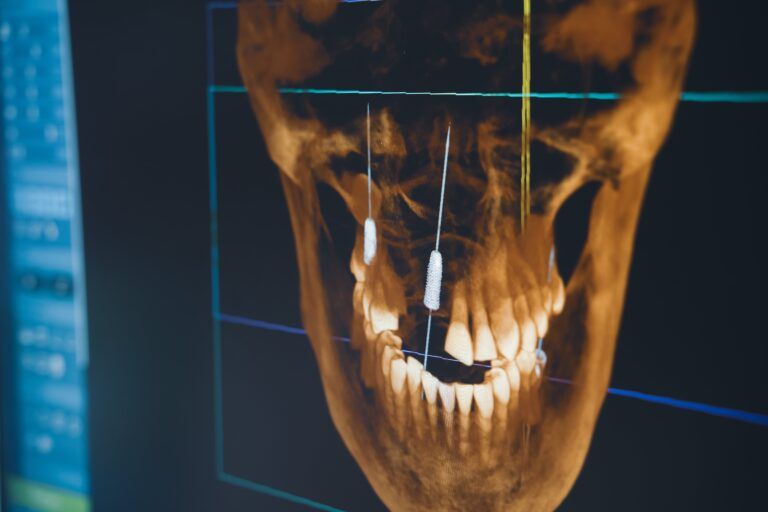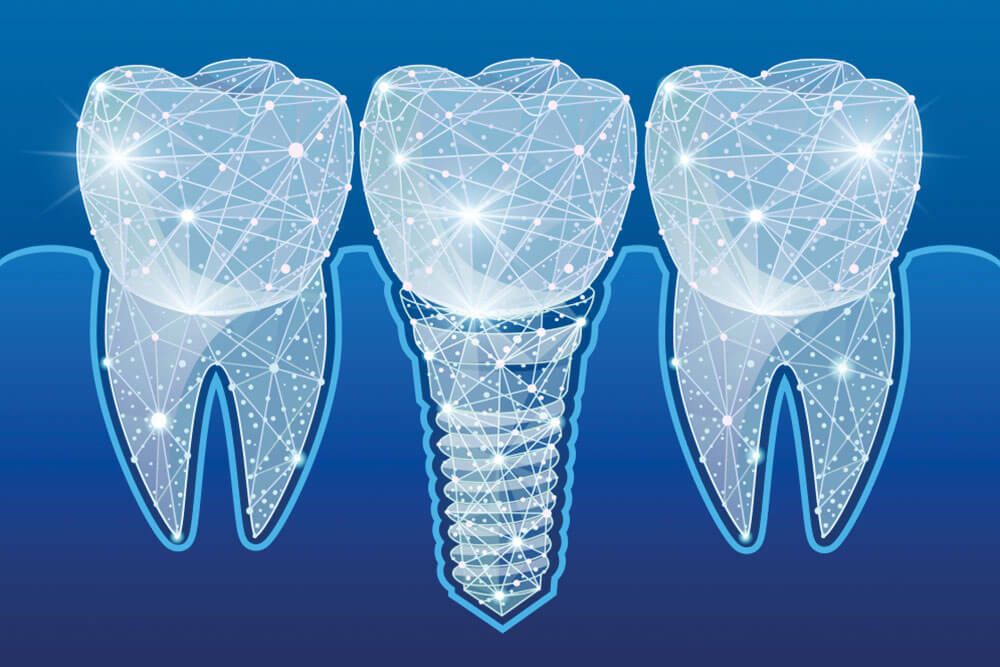In today’s modern dentistry, dental implants have revolutionized the way we restore missing teeth. As a long-term solution that provides stability and functionality, dental implants have become an integral part of dental treatment plans. However, the field of dental implantology continues to evolve, pushing the boundaries of innovation and paving the way for improved patient outcomes. In this blog, we will explore the latest advancements in dental implant technology that are transforming the landscape of dental care.
Traditional Dental Implants: A Brief Overview
Traditional dental implants have long been the standard for tooth replacement and dental rehabilitation. These implants typically consist of a titanium screw that is surgically placed into the jawbone to serve as an artificial tooth root. While traditional implants have proven to be highly successful, they do have certain limitations.
One significant limitation is the requirement of a substantial amount of healthy bone in the jaw to support the implant. Patients with insufficient bone volume may need additional procedures such as bone grafting, which can increase the complexity and cost of treatment. Another limitation is the healing time required for osseointegration, the process by which the implant fuses with the bone. This healing period can extend several months, leading to delayed completion of the dental restoration. Moreover, some patients may experience post-operative discomfort, swelling, or bruising. Additionally, traditional implants may require the use of abutments, which are connectors between the implant and the prosthetic tooth. These abutments can sometimes result in gum irritation or aesthetic concerns. While they have proven successful, these limitations of traditional dental implants have motivated researchers and clinicians to seek innovative solutions.
Innovations in Dental Implant Materials

One of the significant areas of advancement lies in the development of new materials for dental implants. Innovations in dental implant materials have revolutionized the field of implant dentistry, offering improved biocompatibility, strength, and aesthetics. Titanium-zirconium alloys have emerged as an alternative to traditional titanium implants, combining the biocompatibility of titanium with the enhanced mechanical properties of zirconium. These alloys exhibit higher resistance to corrosion, reducing the risk of implant failure and ensuring long-term stability. Additionally, biocompatible ceramic implants have gained popularity for their excellent aesthetics and natural tooth-like appearance. Ceramic implants eliminate concerns of metal allergies and offer optimal tissue integration, resulting in enhanced gum health and overall patient satisfaction. Moreover, the integration of nanotechnology in dental implant materials has introduced remarkable advancements. Nanoscale surface modifications on implant surfaces enhance osseointegration, promote faster healing, and improve the long-term success of implants. These innovative materials provide clinicians with a wider range of options to meet patients’ specific needs while delivering superior functional and aesthetic outcomes.
Advancements in Dental Implant Design
Advancements in dental implant design have transformed the way dental professionals approach implant treatment planning and restoration. The introduction of computer-aided design and manufacturing (CAD/CAM) technology has revolutionized implant dentistry, allowing for precise customization and optimization of implant solutions. With CAD/CAM, clinicians can create patient-specific implant designs tailored to individual anatomical requirements, ensuring optimal fit and functionality. This level of precision leads to improved implant success rates and enhanced aesthetic outcomes. Furthermore, advancements in implant design have resulted in the development of shorter implants and mini dental implants. These innovations provide viable options for patients with limited bone availability, expanding the pool of candidates who can benefit from implant treatment. The use of shorter implants also reduces the need for additional bone grafting procedures, simplifying treatment protocols and shortening overall treatment times. By embracing these advancements in design, dental professionals can offer patients customized, efficient, and successful implant solutions that cater to their unique oral health needs.
Enhancing Osseointegration
Osseointegration, the successful integration of the implant with the surrounding bone, is critical for implant success. Recent advancements focus on enhancing osseointegration through various means. Surface modifications of implant materials have been a major focus of innovation in this area. By introducing micro- and nano-scale textures, implant surfaces can be optimized to promote faster and stronger bone integration. These modified surfaces enhance the implant’s ability to bond with the surrounding bone, leading to improved osseointegration and stability. Additionally, the use of bioactive coatings on implant surfaces has shown promise in stimulating bone formation and accelerating healing. These coatings can release growth factors or other biologically active substances that promote cell proliferation and differentiation, further enhancing osseointegration. By combining surface modifications with advanced materials, dental implant technology has made remarkable strides in improving the osseointegration process, resulting in higher implant success rates and improved patient outcomes.
Digital Dentistry and Implant Placement

Digital dentistry has revolutionized the field of implant dentistry, particularly in the realm of implant placement. With the integration of advanced imaging techniques and computer-guided surgery, digital dentistry has significantly enhanced the precision, accuracy, and efficiency of implant placement procedures. Cone beam computed tomography (CBCT) imaging provides detailed three-dimensional images of the patient’s oral structures, allowing clinicians to assess bone density, identify anatomical landmarks, and plan implant placement with exceptional accuracy. Computer-guided implant surgery utilizes virtual treatment planning software, where the implant placement can be virtually simulated and optimized before the actual surgery. This technology enables clinicians to precisely determine the ideal implant position, angulation, and depth, considering factors such as adjacent teeth and nerve locations. During the surgical procedure, navigational systems provide real-time guidance, ensuring that the implants are placed exactly as planned. Digital dentistry and implant placement technologies not only improve the accuracy of implant positioning but also reduce the risk of complications, enhance patient safety, and result in predictable, successful outcomes.
Prosthetic Innovations
Advancements in dental prosthetics have complemented the success of dental implants. All-on-4 and All-on-6 implant-supported full arch restorations have transformed the treatment of edentulous patients, providing a fixed, immediate solution. Additionally, the use of advanced materials, such as high-strength ceramics and aesthetic zirconia, has improved the durability and aesthetics of implant-supported prosthetics. These materials offer excellent color stability, biocompatibility, and resistance to wear, providing patients with long-lasting, esthetically pleasing restorations. Moreover, advancements in implant abutment design have allowed for more efficient and esthetic solutions. Angulated abutments, for instance, enable clinicians to achieve better emergence profiles and soft tissue aesthetics, enhancing the overall esthetic outcome of the restoration. With these dental implant prosthetic innovations, patients can enjoy the benefits of functional, durable, and aesthetically pleasing implant-supported restorations, significantly improving their quality of life and self-confidence.
Future Trends in Dental Implant Technology
The future of dental implant technology holds exciting possibilities. Emerging technologies, such as tissue engineering and regenerative medicine approaches, aim to regenerate damaged or lost tissues, revolutionizing the field. Biologically active implants that release growth factors or drugs to promote healing and prevent infection applications are expected to play a significant role in implantology. These technologies can analyze large datasets, improve treatment planning algorithms, and assist in predicting treatment outcomes. By harnessing the power of AI, clinicians can make more informed decisions and provide personalized treatment options for patients.
In Conclusion:
Innovations in dental implant technology have propelled the field of dentistry into new realms of possibility. With advancements in materials, design, osseointegration techniques, digital dentistry, and prosthetic solutions, dental implantology has undergone a transformative evolution. These innovations have not only improved the success rates and functionality of dental implants but have also enhanced the overall patient experience. By embracing the latest technologies and staying abreast of emerging trends, dental professionals can offer patients personalized, efficient, and aesthetically pleasing implant solutions. As we look towards the future, the continued innovation in dental implant technology holds immense promise for further advancements, including regenerative medicine, biologically active implants, and AI-driven applications. By embracing these innovations, we are charting a path towards a future where dental implants will continue to restore smiles with precision, durability, and improved patient outcomes.

